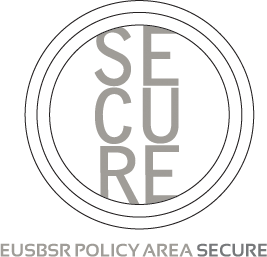In response to the 2025 Vihula Ministerial Declaration’s call to refocus the CBSS on today’s security environment, the CBSS Secretariat – together with the Swedish Civil Contingencies Agency (MSB), its co-coordinator of EUSBSR Policy Area Secure (PA Secure) – hosted an informal roundtable on societal security at its premises in Stockholm on 20 October 2025. The meeting gathered leading researchers from Sweden, Finland, Estonia and Poland, alongside MSB and the CBSS Civil Security team, to discuss how research can better support authorities facing complex, cross-border and hybrid threats in the Baltic Sea Region. The Secretariat presented existing cooperation formats – the CBSS Civil Protection Network and PA Secure – as well as Polish CBSS Presidency priorities, including protection of critical infrastructure, countering the shadow fleet, hybrid threats such as GPS jamming, all-hazard and whole-of-society approaches, societal risk awareness and mass evacuation. The roundtable also followed up on the Finnish proposal to strengthen research, development and innovation (RDI) in the revised PA Secure Action Plan.
Participants identified several promising themes for cooperation, such as critical societal functions, civil defence, civil–military cooperation and learning from Ukraine’s experience – including through collaboration with Ukrainian researchers. They stressed the need for quick, actionable formats that use existing CBSS and PA Secure structures: targeted seminars on “hot” topics, pre-briefings with researchers before key CBSS meetings, expert surveys and best-practice overviews as publications, knowledge inventories to map existing research and project results, and inclusion of researchers as observers or evaluators in exercises. At the same time, they highlighted gaps: limited and project-based funding, questions of how to sustain a researchers’ network, difficulties involving industry, and the wider implementation gap where available knowledge is not always translated into action.
CBSS, also in its capacity as the PA Secure coordinator, was seen as natural knowledge broker between science, policy and practice in the Baltic Sea Region. Concrete suggestions included establishing a CBSS CPN/PA Secure research advisory body, building and using a database of guest experts, inviting researchers into high-level events and exercises, and convening strategic planners from Member State authorities together with scientists to look at emerging risks and vulnerabilities. As next steps, participants agreed to share the meeting conclusions, explore a joint session with the PA Secure Steering Group in Kraków in December 2025, involve researchers in planning the upcoming Swedish CBSS/PA Secure presidency, and convene a follow-up, more focused researcher meeting in 2026.


